Best pet reptiles: 5 species that are great for beginners
These are the best pet reptiles if you've never had one before.
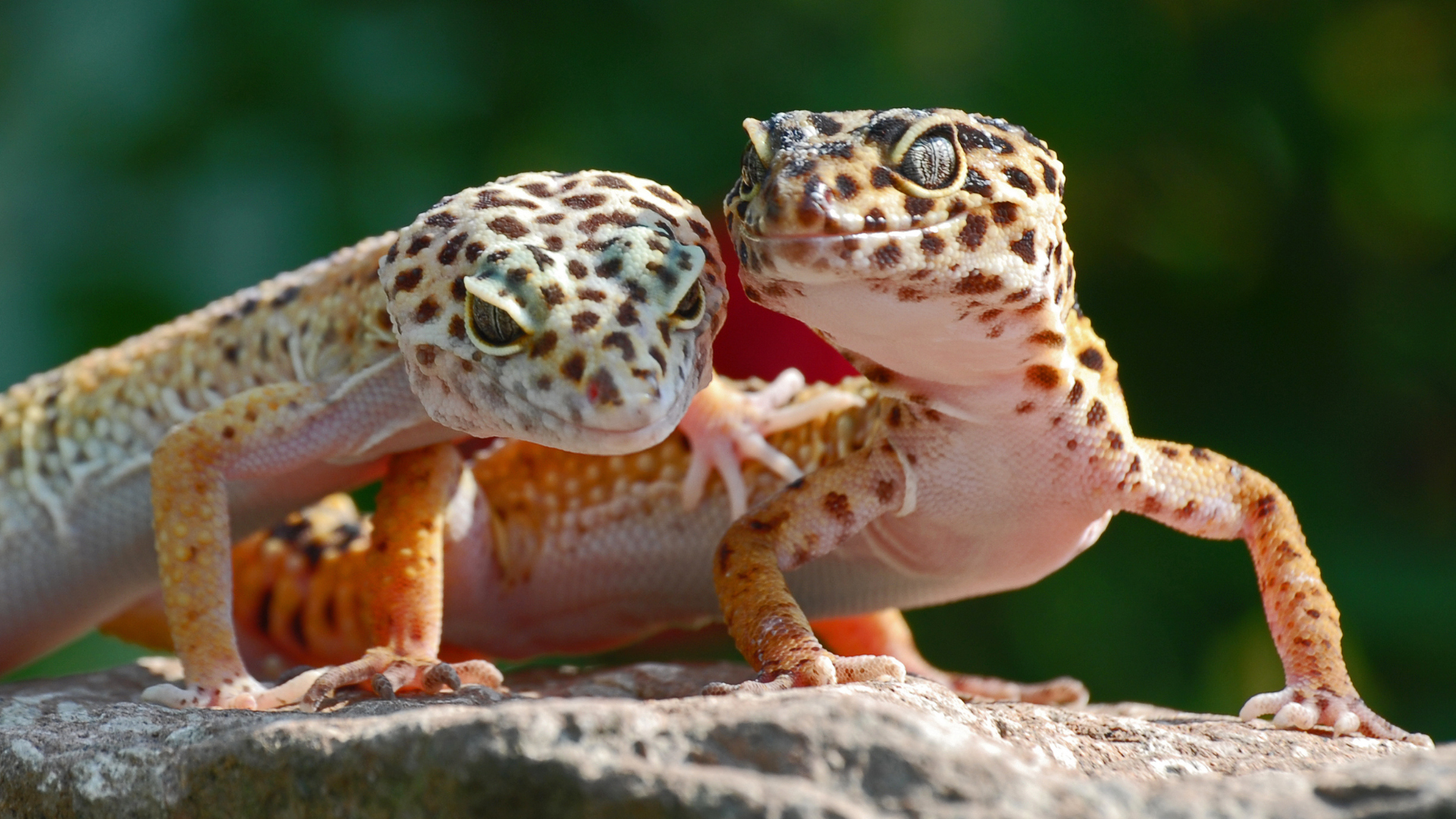
Get the best advice, tips and top tech for your beloved Pets
You are now subscribed
Your newsletter sign-up was successful
Looking for the best pet reptiles? We've got you covered! With the help of expert vet Dr. Rebecca MacMillan, we've rounded up our top five picks for beginners and explained why they make such great pets.
Whilst these species are good for novices, getting a reptile is still a huge responsibility and a decision that you shouldn't take lightly. These creatures require special care and some of them need to be kept in very particular climates using the best reptile heating pads.
Dr. MacMillan says: "When choosing any pet, I urge any would-be pet owners to consider not only their set-up budget carefully but also to factor in any ongoing costs, such as electricity, food, and veterinary bills. Don’t rush into purchasing a pet unless you are sure that you can meet all their needs and care for them properly. And remember that reptiles can live for 10 years or more, so it is a long-term commitment."
What is the best reptile to get as a pet?
Corn snake
Corn snakes are one of the best pet reptiles, thanks to their docile personality and ease of handling. They're a lot smaller than other snake species, which you might find more favorable, growing to five feet in length. You'll get to spend lots of time with your new scaly friend as they're most active during the day.
When it comes to dinnertime, you'll need to feed them one mouse per week, according to Dr. MacMillan, which you can buy frozen. This diet is a lot simpler than other lizards who need to be fed more regularly.
You don't have to keep them under a UVB light, but Dr. MacMillan says it would be beneficial. However, you will need to make a temperature gradient in their tank via a heat source.
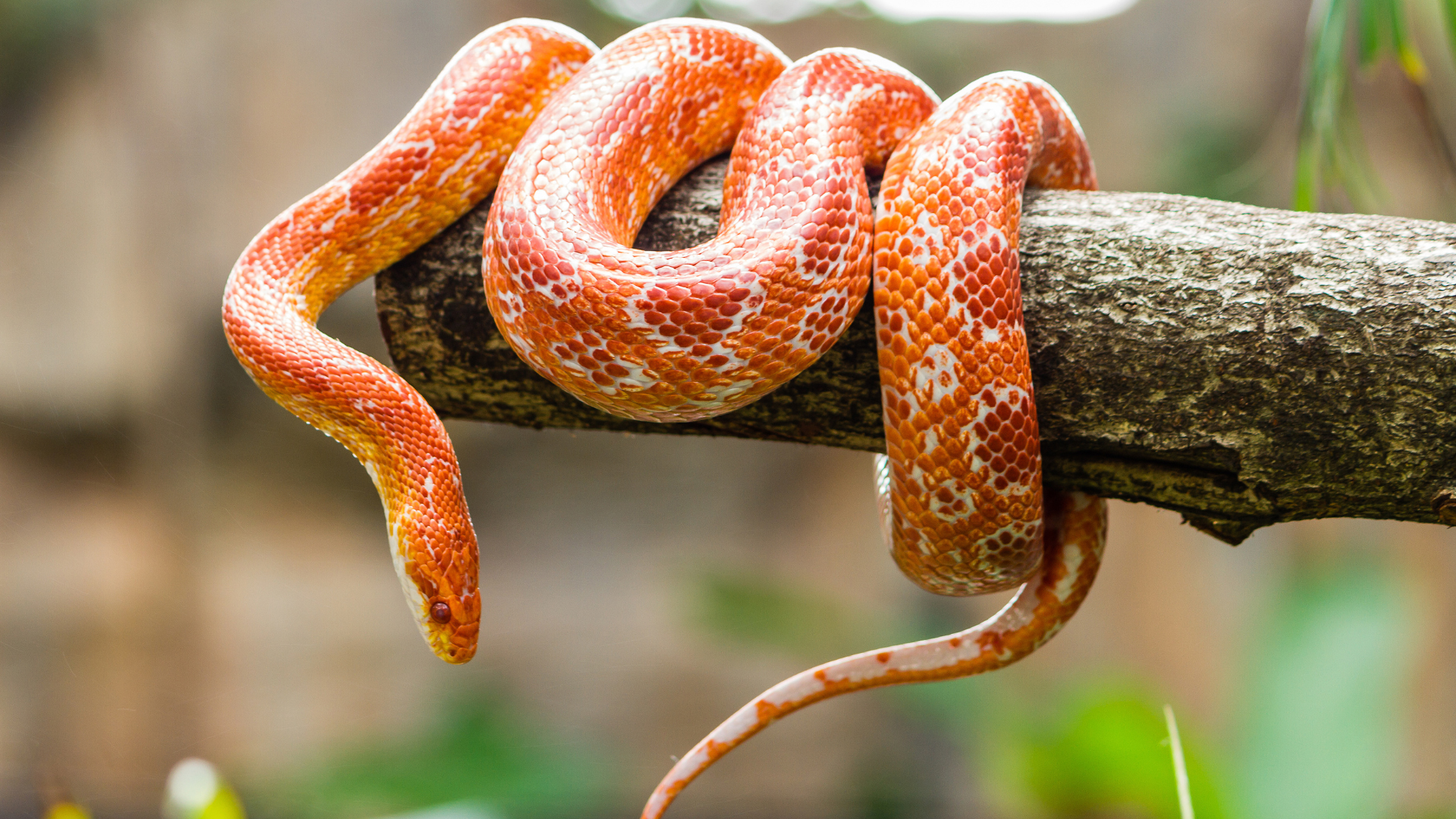
Leopard gecko
Not only is the leopard gecko beautiful to look at, but they have a gentle and calm personality that's great for children and beginners. Since they only grow to about eight inches, they're a good choice for handlers with limited space.
Get the best advice, tips and top tech for your beloved Pets
If you supplement their diet with vitamin D3, you won't need to install a UVB light for them - you'll just need a heating mat. They'll also appreciate the best toys for pet lizards to keep them mentally and physically stimulated. These crepuscular creatures are active at dawn and dusk, making them suitable for owners who are out during the day.
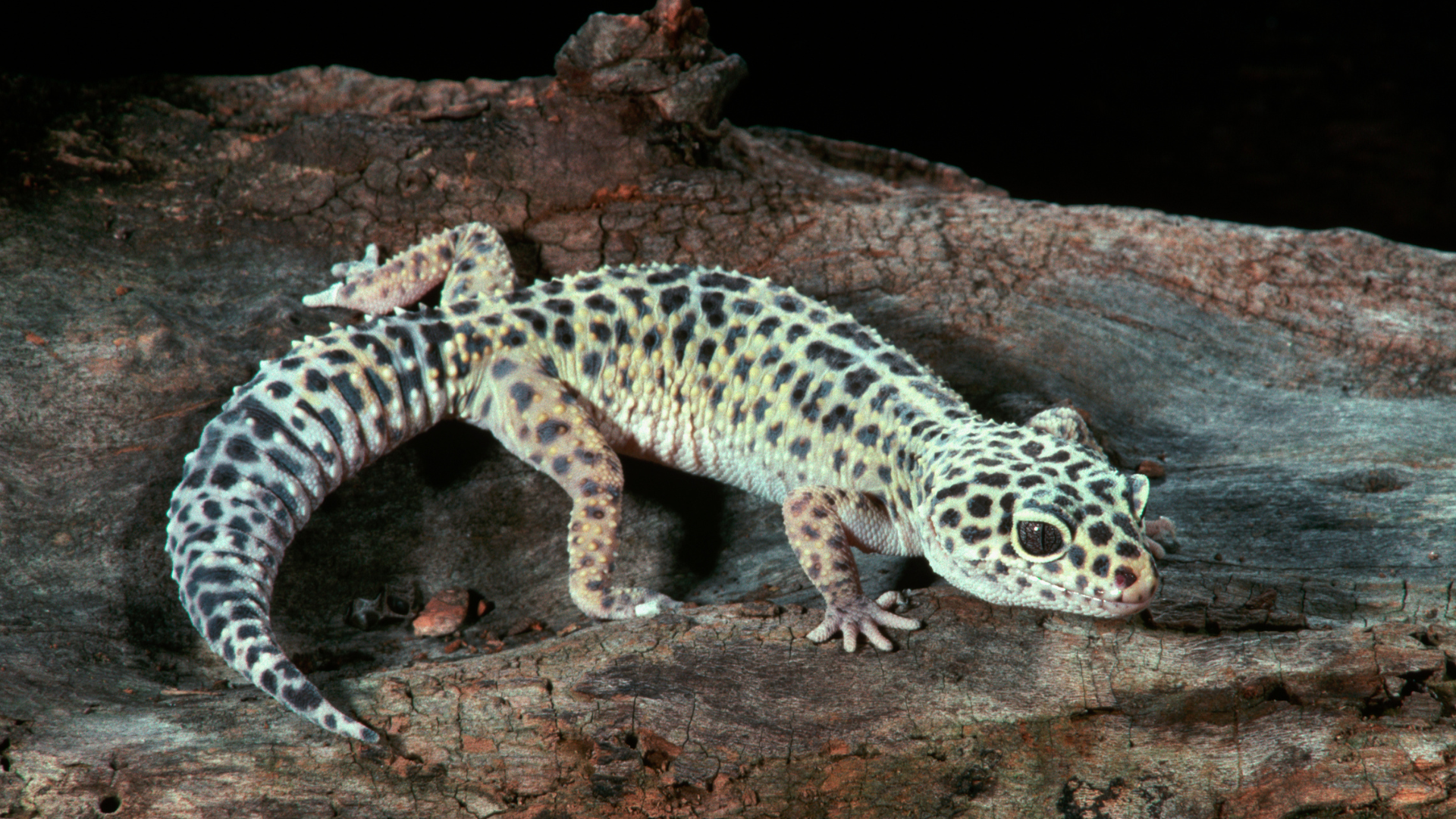
Bearded dragon
Since bearded dragons love spending time with people and don't have an aggressive nature, they make brilliant pets, according to Dr. MacMillan. They can grow up to two feet in length, so you'll want to ensure their new home is big enough.
Giving the correct bearded dragon care is super important - they need a large enclosure, a UVB light, a heat lamp and a varied diet of insects and vegetables. You'll be pleased to hear that they're not picky eaters, so you shouldn't have too much trouble with feeding them.
Before you bring one home, it's worth learning how long bearded dragons can go without heat.
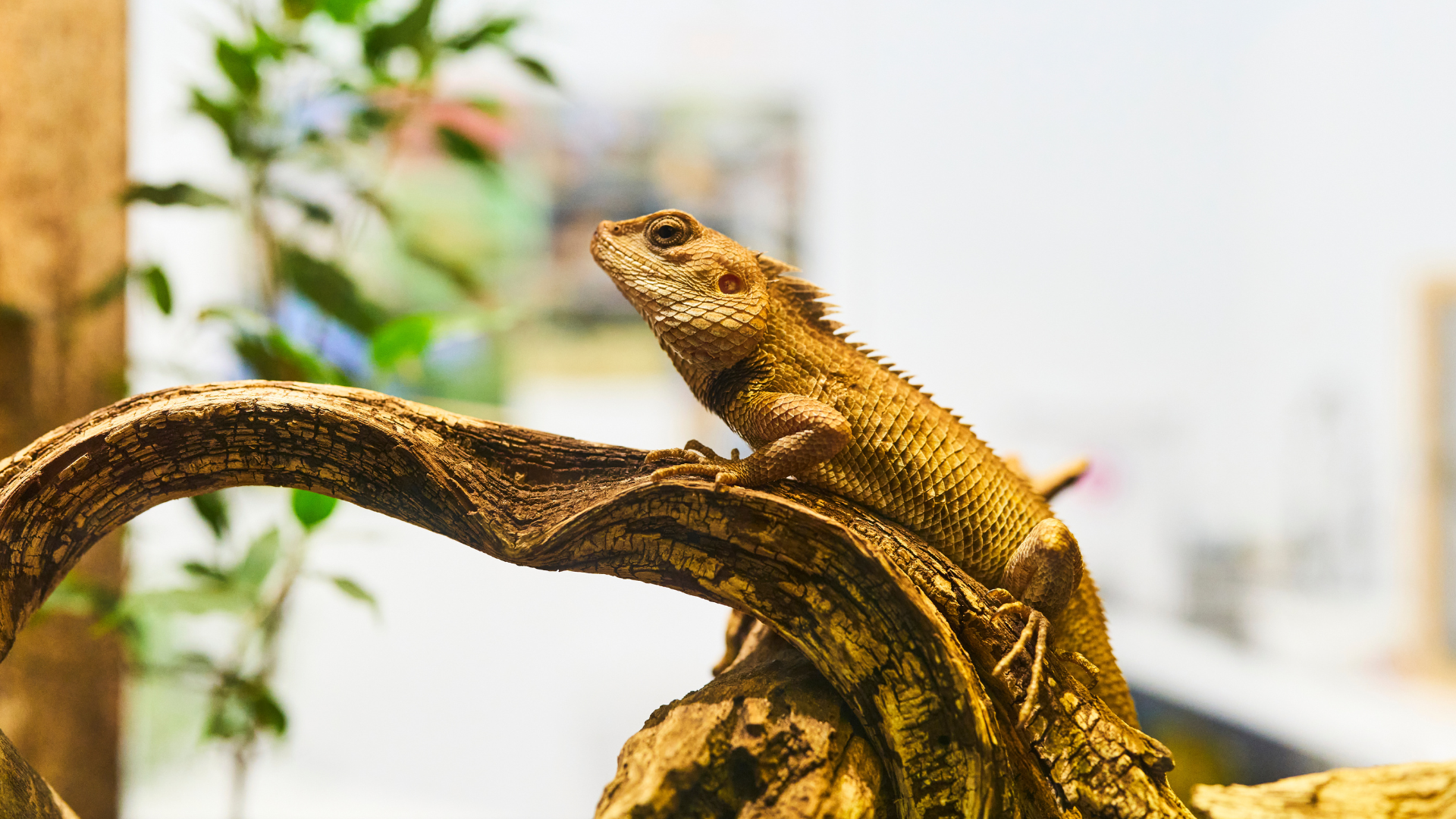
Russian tortoise
Russian tortoises are friendly and curious, making them an excellent choice for families and children. They can grow up to 10 inches long and will need a large enclosure with plenty of space to explore. It's worth keeping in mind that they can live up to 50 years, so ensure you're ready for the long-term commitment before you adopt one.
Tortoises are herbivores and can eat leafy greens, hay, certain vegetables, and the occasional piece of fruit as a treat.
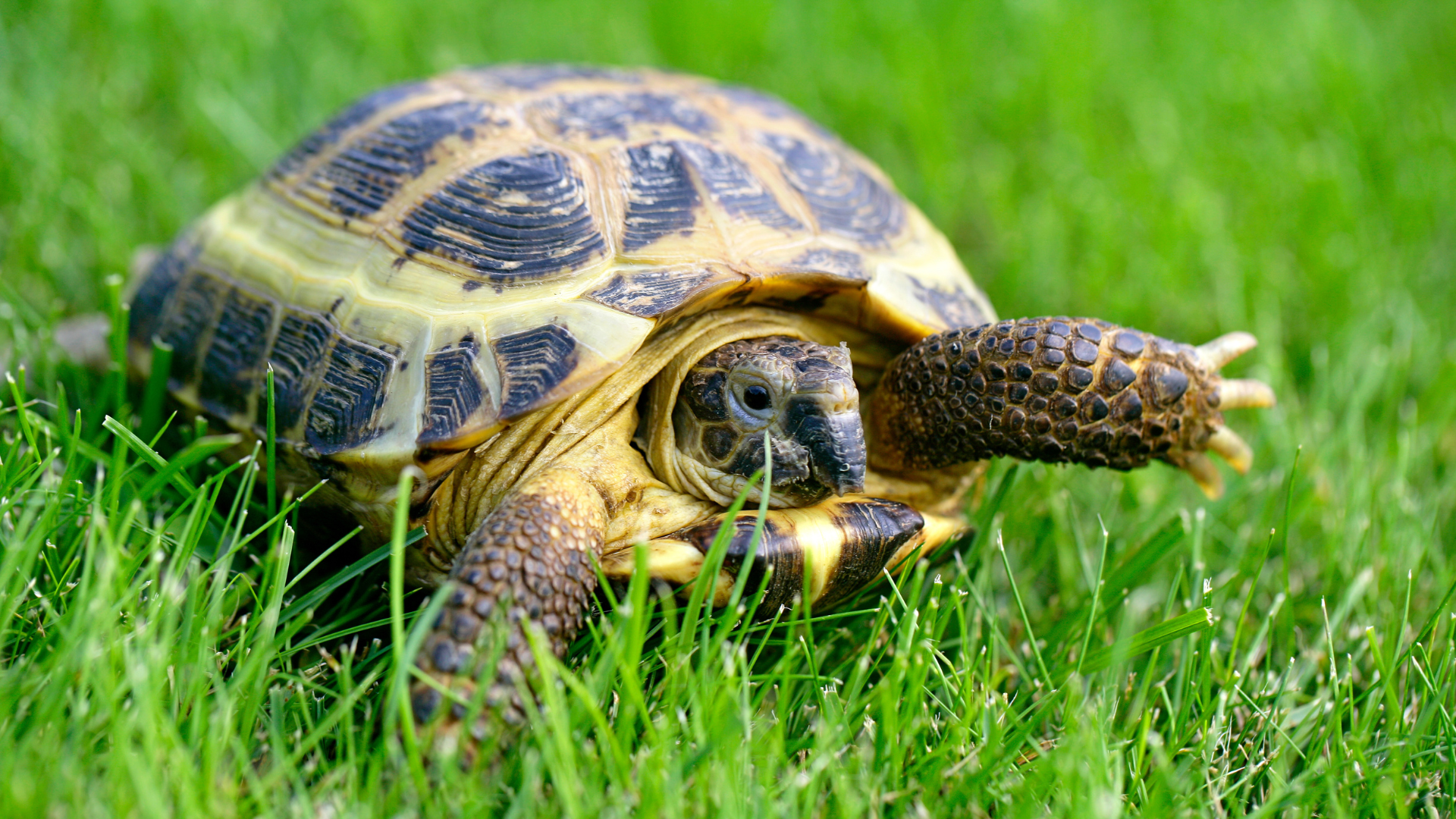
Blue tongue skinks
There are lots of reasons to love blue tongue skinks — their striking cobalt tongue being one of them! As well as having some pretty cool features, they make wonderful pets and have an intelligent, laid-back personality. Their diet is a mix of animal protein, fruits, and vegetables, plus calcium and vitamin D3 supplements.
This might come as a surprise, but skinks can live for up to 20 years, so make sure you're invested for the long run. Similar to bearded dragons, these reptiles require a temperature gradient, so you'll need to invest in UVA and UVB lighting and use a thermometer to monitor their enclosure.
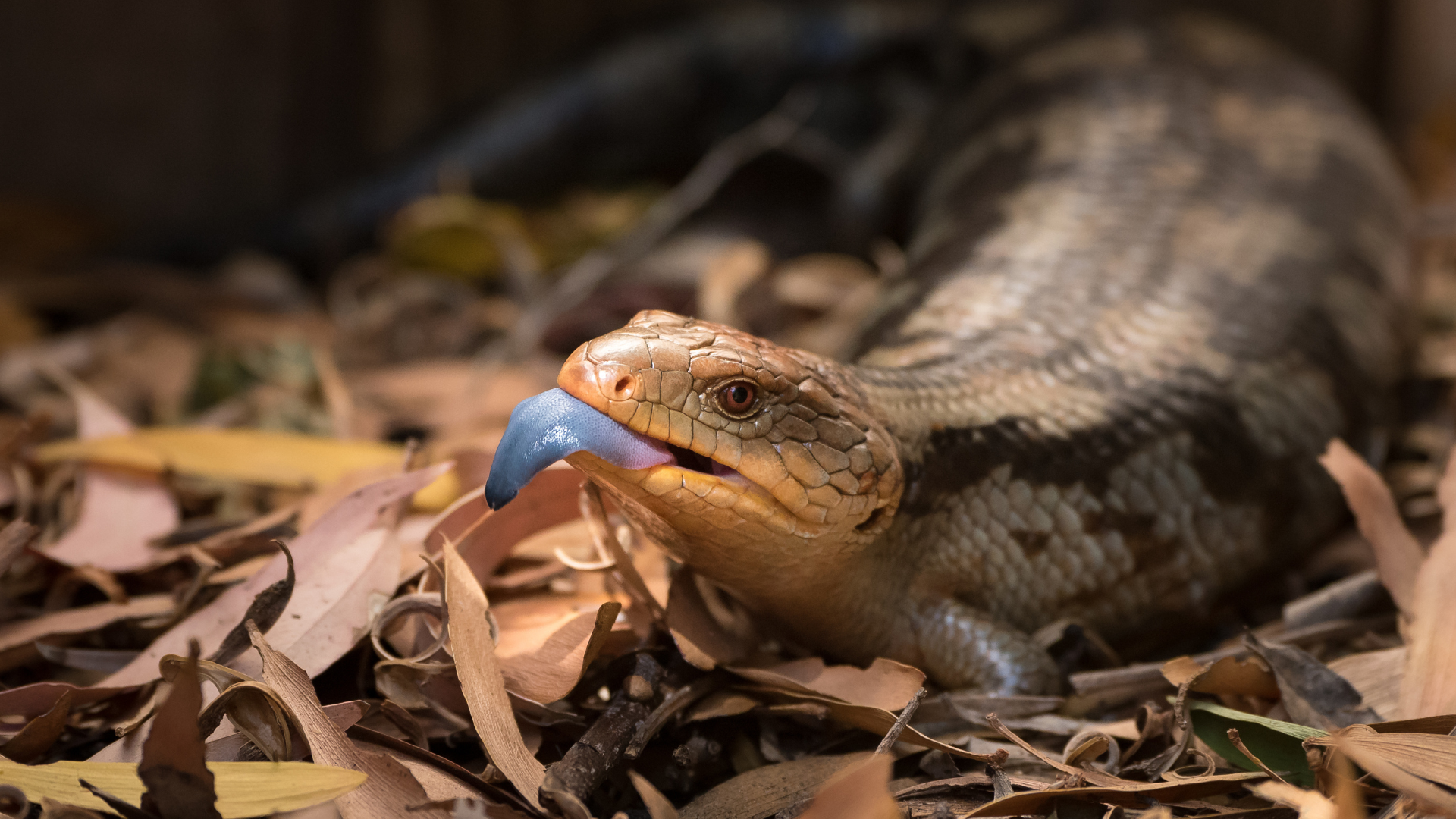
Do any reptiles bond with humans?
If you're wondering, 'Do any reptiles bond with humans?' the answer is no. Well, not in the same way that cats and dogs do anyway. Dr. MacMillan explains that since they've not been domesticated to the same level as our furry friends, the type of bond is very different and they're "quite basic in how they interact with us".
Their needs are focused on food, water, breeding, and survival, so you might receive some interest and enthusiasm if you're bringing them some food.
Dr. MacMillan says: "Otherwise, they are not very good at showing what they are feeling unless they are fearful or aggressive. That’s not to say a reptile won’t bond with you in their own way, and there are definitely some individuals that show more expression than others, but don’t expect any big displays of affection from them."
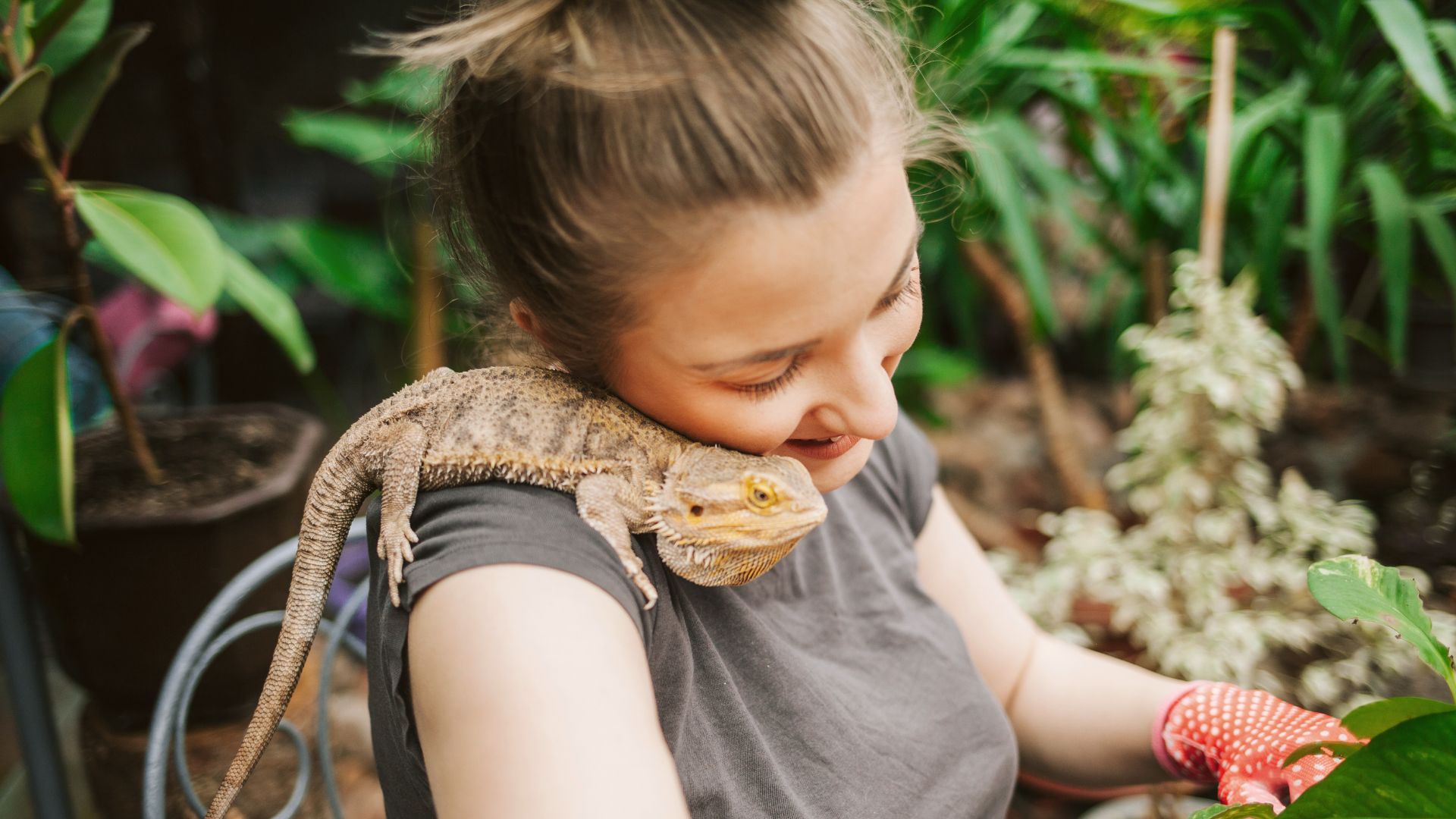
Do reptiles like to be touched?
Yes, some reptiles like to be touched and handled.
Dr. MacMillan says: "Pet iguanas seem to enjoy this type of human contact, and many turtles will push into your hand for more if you are petting them. Snakes also seem to appreciate being held and will wrap themselves around your arms or legs. This could also be because they are enjoying your body heat or a change of scenery from their enclosure, however. Bearded dragons are usually quite docile and like nothing better than to sit on your lap or even your shoulder.
"The more gentle handling you do, the more you and your pet will become accustomed to each other. This will all allow you to work out how your reptile likes being touched as well as providing them with some mental and physical stimulation."
Want more reptile advice? Read 32 types of reptiles you can keep as a pet.
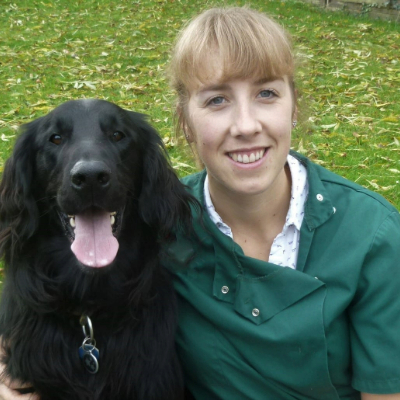
Rebecca is a vet surgeon who graduated in 2009 from the Royal Veterinary College in London. She has a wealth of experience in first opinion small animal practice, having done a mixture of day-to-day routine work, on-call emergency duties, and managerial roles over the years. She enjoys medicine in particular and she is proud to have recently achieved a BSAVA postgraduate certificate in small animal medicine (with commendation). She writes on various feline and canine topics, including behavior, nutrition, and health. Outside of work and writing she enjoys walking her own dog, spending time with her young family and baking!

Megan is a Staff Writer at PetsRadar, covering features, reviews, deals, and buying guides. She has a wealth of experience caring for animals, having grown up with dogs, cats, horses, guinea pigs, and more throughout her life. She studied BA Journalism at the University of Westminster, where she specialized in lifestyle journalism and was editor of Smoke Radio’s lifestyle website. Megan works alongside qualified vets and accredited trainers to ensure you get the best advice possible. She is passionate about finding accurate and helpful answers to your pet-related questions.
